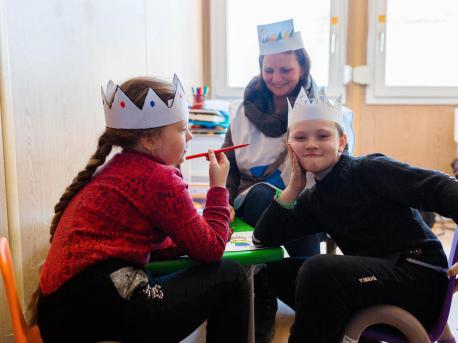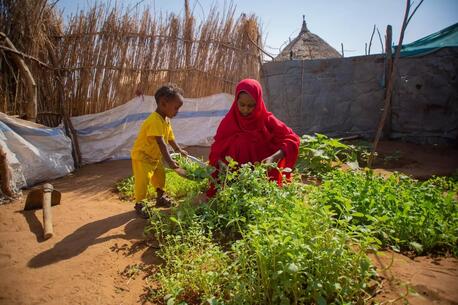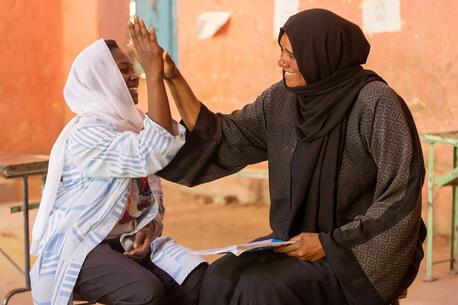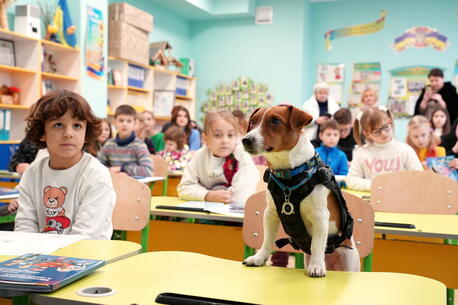
Blue Dot Centers Help Children Traumatized by War in Ukraine
The war in Ukraine is having a devastating impact on the country's children. In the first six weeks, nearly two-thirds of Ukraine's child population were displaced from their homes. As of April 28, 2022, more than 5.4 million people, half of them children, had crossed the border into Poland, Moldova, Romania, Hungary and other neighboring countries in search of safety.
For a child who is suddenly uprooted by violence, a safe and peaceful place to play and caring people to talk to can make a world of difference. That's why every Blue Dot refugee support center set up by UNICEF and UNHCR, in cooperation with local authorities and partners, contains a designated space where kids can just be kids for a while. The play areas are staffed by volunteers and psychologists trained to comfort children and provide mental health support to help them recover from the trauma they've experienced.
"Most of the time we are inclined to [think] that the children's experience is not [as] impactful as the adults, because they don't see reality with the same eyes as we see," says Andreea Vrinceanu, Refugee Coordinator at a Blue Dot in Brasov, Romania. "But actually, they are the ones most hurt by these kinds of changes. They are actually suffering deep down inside."
Blue Dot centers offer children escaping violence a safe place to play and vital mental health support
At a Blue Dot center near the border in Palanca, Moldova, children play and draw in a child-friendly space stocked with games, toys and art supplies. Blue Dot psychologist Tatiana Andriesh spends her days working with children whose lives have been turned upside-down by the war. Some keep to themselves, color quietly or play with a toy. Others are relieved to have a friendly adult to talk to.
"Mostly we do game therapy," Andriesh says. "But it will depend on the child, how ready he or she will be to play with us."
Caring for the children involves providing emotional support for their parents as well.
"Somehow, the emotional state of the parents is passed on to the children," Andriesh says. "If a parent is hugging them too tightly, the child gets afraid. There are situations where the mothers are so emotionally affected that we have to work with the parents somehow, and after that we can give attention to the children."
As the war escalates, UNICEF is scaling up its humanitarian response to protect the mental health and well-being of children in Ukraine and in refugee-hosting countries.
Help UNICEF meet the emergency needs of children and families struggling to survive the war in Ukraine. Your contribution can make a difference. Please donate.
TOP PHOTO: On March 19, 2022, Ivan, right, and his sister, Sofia, from Mariupol, Ukraine, play and chat with a Blue Dot psychologist in a child-friendly space located in the Blue Dot hub at the Palanca border crossing in the Republic of Moldova. Ivan was excited to tell the psychologist about his hopes for the future; he's planning to become an archeologist. © UNICEF/UN0610001/Vladimir. Video edited by Tong Su for UNICEF USA
Blue Dot centers set up by UNICEF and UNHCR offer children escaping violence a safe place to play and vital mental health support. [VIDEO]


